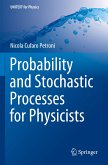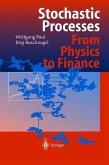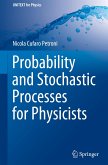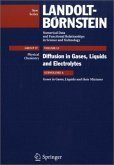It is generally believed that collisions of particles reduce the self-diffusion coefficient. In this book, Erik Kalz shows that in classical systems under the effect of Lorentz force, which are characterized by diffusion tensors with antisymmetric elements, collisions surprisingly can enhance self-diffusion. In these systems, due to an inherent curving effect, the motion of particles is facilitated, instead of hindered by collisions. Consistent with this the author finds that the collective diffusion remains unaffected. Using a geometric model, he theoretically predicts a magnetic field governed crossover from a reduced to an enhanced self-diffusion. The physical interpretation is quantitatively supported by the force autocorrelation function, which turns negative with increasing the magnetic field. Using Brownian-dynamics simulations, he validates the predictions.
Bitte wählen Sie Ihr Anliegen aus.
Rechnungen
Retourenschein anfordern
Bestellstatus
Storno








